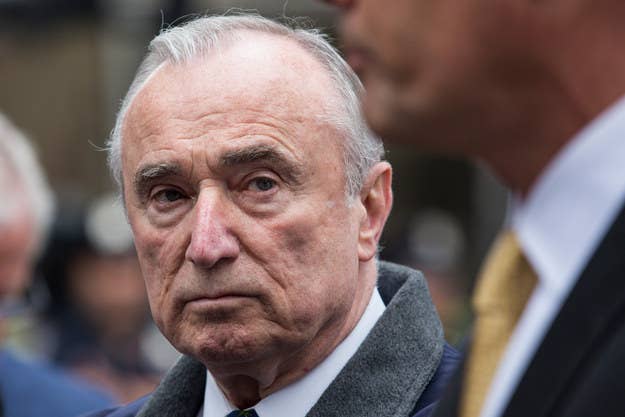
New York Police Department Commissioner Bill Bratton said Monday he believes chokeholds should remain legal — and that proposed laws requiring officers to identify themselves and remind the public of their right to refuse a search are unnecessary.
"Let's give peace a chance," the commissioner said, quoting John Lennon.
Bratton made his comments during a tense City Council hearing, where members of the Public Safety committee asked for his input on nine proposed laws. The NYPD chief, who just recently praised the Council for approving a budget that gives him the money to hire nearly 1,300 new police officers, said he agreed with the policies behind the measurs but did not believe creating new laws was necessary.
On the issue of chokeholds, which are banned by NYPD regulations but remain legal at the state level, Bratton argued that the department's internal disciplinary process is enough to deter cops from using the maneuver. Chokeholds rose to the public eye last year, after Officer Daniel Pantaleo used one on Eric Garner, an unarmed black man being arrested for allegedly selling untaxed cigarettes. The chokehold led to Garner's death, according to the medical examiner.
A recent report by the Office of the Inspector General, a city agency charged with auditing the NYPD, examined ten cases in which the department investigated substantiated chokehold complaints. None of the officers involved in those 10 cases received serious sanctions, even though the Civilian Complaint and Review Board — the body that processes the public's complaints against individual officers — recommended them in every case.
On the issue of the "Right to Know Act" — a set of laws that would require officers to proactively identify themselves, state the reason for the interaction, and remind people that they have the right to refuse a search — the commissioner said officers already wear name-tags and badges. He also worried about damaging the department's morale, saying the proposed legislation could "stir up the pot" and anger the department's union and rank and file.
"Do you really think that requiring officers to identify themselves in a day to day encounter is an unreasonable request?" asked one incredulous council member.
In a statement, the Patrolman's Benevolent Association, which represents rank-and-file officers, echoed Bratton's concerns.
"These proposed laws — which cover everything from officer's identification, rules for searches, and the use of physical force — are unnecessary and redundant and could have a further chilling impact on law enforcement that will make our streets more dangerous," Pat Lynch, the PBA president, said in a statement.
Police reform activists, including the New York Civil Liberties Union, also testified at the hearing and held a small protest outside the Council chambers. They said the department cannot be expected to reform itself.
“The Right to Know Act is essential to rebuild trust between police and New Yorkers following decades of overly aggressive policing targeting our communities of color,” Donna Lieberman, the NYCLU's executive director, said in a statement. “We cannot wait for another tragedy like Eric Garner or Akai Gurley to acknowledge how police encounters have the potential to escalate into tragedy.”
It's unclear when the bills will see a vote, but a City Hall source told BuzzFeed News that none of the nine bills currently have the 34 sponsors required to overcome a mayoral veto, should Mayor Bill de Blasio choose to side with his commissioner.
The bill requiring officers to identify themselves currently has 30 supporters, the source said. The proposal to criminalize chokeholds has 28. The bill that would require officers to inform the public of their right to refuse a search has 24 sponsors.
The other six laws have the backing of less than nine council-members, the source said.
